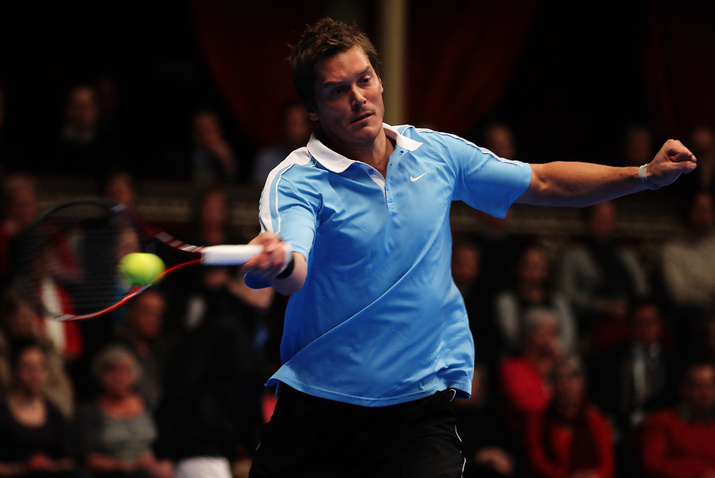Don't miss any stories → Follow Tennis View
FollowSwedish Success Shifts From Court to Coaching
Mar 8th 2014
The ranks of former top-10 players from Sweden who are now coaches on the ATP World Tour recently grew by one when Thomas Enqvist signed on to help No. 33 Fernando Verdasco. If Enqvist accomplishes a fraction of what his compatriots Magnus Norman and Stefan Edberg have done for Stanislas Wawrinka and Roger Federer, respectively, it would be quite impressive.

One question springs to mind, though: what’s happening on the homefront?
Sweden, which has produced a slew of top-10 players and Grand Slam winners over the past 30 years, hasn’t had anyone ranked in the top 150 in men’s singles since mid-2012. That player was two-time French Open finalist and former world No. 4 Robin Soderling, who has been dealing with the lingering effects of mononucleosis and has been off the tour since. Soderling achieved his career highlights, which included being the first (and so far only) player to defeat Rafael Nadal at Roland Garros, under the guidance of Norman, who was regarded as one of the hardest workers in the game during his playing days.
Norman’s game was modeled upon the once-prototypical Swedish style of play, best exhibited by seven-time Grand Slam champion Mats Wilander and 11-time major winner Bjorn Borg before him: grinding your opponents into submission. That mentality also helped players such as Joakim Nystrom and Kent Carlsson reach the top 10 in the 1980s. It was Edberg, though, who broke the mold on camping out behind the baseline among the Swedes as his attacking style of play helped him gain the No. 1 ranking, as well as six Slams of his own.
Then, with the natural evolution of the game, the Swedes began to adapt their style of play to hit blistering groundstrokes. From this more modern group, Enqvist, Magnus Larsson, Thomas Johansson and Soderling all reached the top 10. Jonas Bjorkman, one of the greatest doubles players of his generation, was also a former world No. 4 and U. S. Open semifinalist.
Now Sweden languishes in the midst of its own drought of singles Slam championships, with Johansson’s 2002 Australian Open victory the last among them. But perhaps there are signs of a rebound, since there are currently two boys ranked in the top 100 of the ITF junior rankings. And tennis by nature is cyclical, so a nation in a dry period ultimately regains a strong position on the global scale.
It could be Sweden’s time again in a few years. Right now, though, the country’s presence is felt from the coaches’ box rather than on the court.










